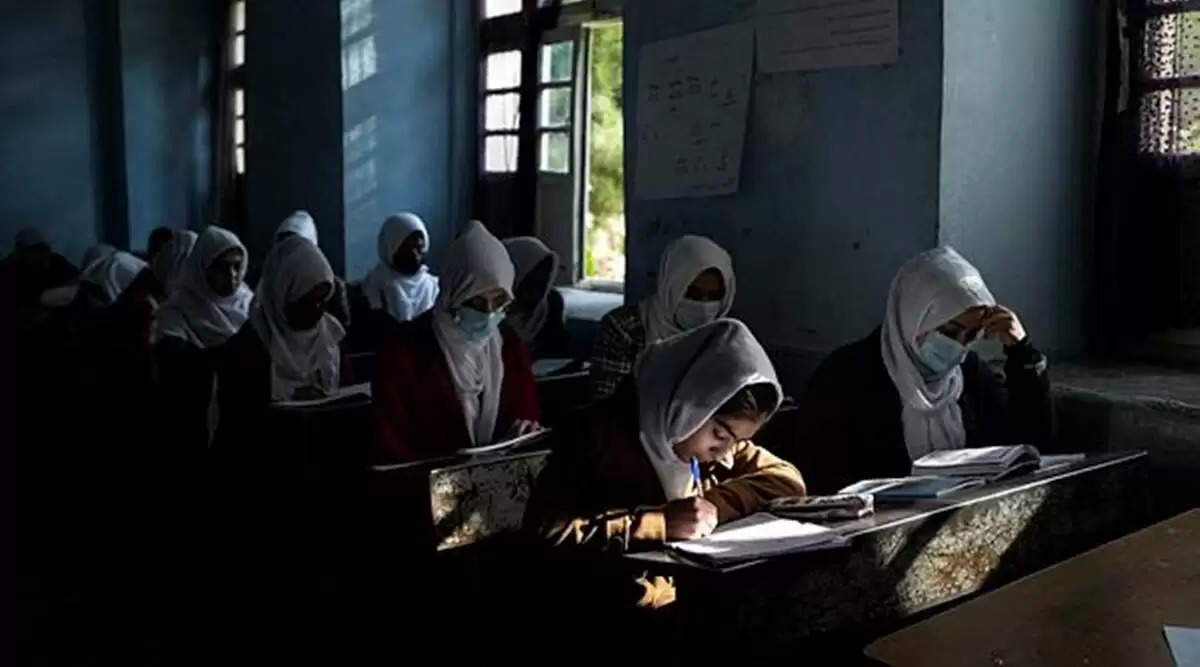The Taliban has broken its commitment to providing higher education for Afghan girls.

Afghanistan's Taliban authorities surprisingly decided not to reopen schools to females above the sixth grade on Wednesday, breaking a promise and deciding to placate their hard-line constituency at the price of further alienating the international world.
The unexpected decision, confirmed by a Taliban spokesman, is sure to jeopardize the Taliban's efforts to get recognition from possible international donors at a time when the country is embroiled in a deteriorating humanitarian catastrophe.
The international world has asked Taliban officials to reopen schools and allow women access to public spaces.
The reversal was so abrupt that the Education Ministry, as well as schools in portions of the Afghan capital of Kabul and elsewhere, were caught off guard on Wednesday, the first day of the school year.
According to aid organizations, the decision has heightened uncertainty about Afghanistan's future, as the Taliban leadership appears to be struggling to get on the same page as it transitions from fighting to governing.
It also occurred while the leaders met in Kandahar, amid concerns of a probable Cabinet shuffle.
US Special Representative Thomas West expressed "shock and grave regret" with the decision, calling it a "betrayal of public obligations to the Afghan people and the international community."
"For the sake of the country's future and its relations with the international community, I would urge the Taliban to live up to their obligations to their people," he said.
The Norwegian Refugee Council, which spends roughly $20 million per year on elementary education in Afghanistan, was still waiting for formal word from the Taliban on the cancellation of programs for girls above the sixth grade. The NRC also offers emergency housing, food, and legal assistance.
Berenice Van Dan Driessche, the council's advocacy manager, said that as of Wednesday night, their representatives had not received official notification of the change and that girls in the 11 provinces where they serve had gone to school but were sent home.
She stated that the committee's personnel throughout the provinces "expressed a lot of dissatisfaction as well as a lot of worries" about the future. They stated that teachers in some locations have stated that they will continue to hold classes.
The decision was made late Tuesday night, according to Waheedullah Hashmi, the Taliban-led administration's external affairs and donor representative.
"We don't say they'll be closed indefinitely," Hashmi remarked.
UN Special Representative Deborah Lyons will try to meet with the Taliban on Thursday to persuade them to rethink their decision, according to U.N. spokesperson Stephane Dujarric.
Earlier this week, the Education Ministry issued a statement urging "all pupils" to return when classes began on Wednesday.
Mawlvi Aziz Ahmad Rayan, a ministry spokesperson, told AP on Tuesday that all girls will be allowed back to school, though the Taliban government would not insist on it in regions where parents were opposed or schools could not be segregated.
He was hesitant to provide specifics, but he guaranteed that if schools can achieve these requirements, "there would be no issue for them" to begin lessons for girls in the upper grades.
"In principle, there is no issue from the ministry side," he continued, "but as I stated, it is a delicate and cultural matter."
The decision to postpone the return of girls in higher grade levels looked to be a compromise to the hard-line Taliban movement's rural and largely tribal backbone, which is unwilling to send their daughters to school in many sections of the countryside.
The decision occurred as the movement's leadership was invited to southern Kandahar by the Taliban's reclusive commander, Haibatullah Akhunzada, amid reports of a Cabinet shakeup.
Since the Taliban's ascension to power in August 2021, there have been recurrent allegations of schisms within the senior leadership.
According to these sources, more hardline members are at odds with pragmatists who want to see more engagement with the rest of the world. While remaining committed to their Islamic principles, they wish to be less harsh than when they previously dominated Afghanistan, prohibiting women from working and girls from attending school, according to sources.
Unlike in the past, television is now legal in Afghanistan, and women are no longer compelled to wear the all-encompassing burqa. However, they must wear the traditional hijab, which covers their heads. Women have also returned to work in the ministries of Health and Education, as well as at Kabul International Airport, where they work in passport control and customs.
The Taliban were deposed by a US-led coalition in 2001 for harboring al-Qaida leader Osama bin Laden, but they reclaimed control following America's tumultuous exit last year.
Since the Taliban's return, girls have been barred from attending education beyond the sixth grade in the majority of the country.
Universities opened earlier this year across much of the country, although Taliban edicts have been unpredictable since assuming power.
While a few provinces continued to provide universal education, the majority of provinces closed educational institutions for girls and women.
Private schools and universities have continued to operate in Kabul, the capital.
The religiously motivated Taliban regime is concerned that enrolling girls beyond the sixth grade will alienate its rural base, according to Hashmi.
"The leadership hasn't decided when or how girls will be allowed to return to school," he explained. While he acknowledged that metropolitan areas are generally supportive of girls' education, most of rural Afghanistan is opposed, particularly in Pashtun tribal areas.
According to Hashmi, in certain rural areas, a brother will disown a city-dwelling brother who allows a daughter to attend school, and the Taliban leadership is attempting to decide how to expand education for girls beyond the sixth grade nationwide.
The majority of Taliban are ethnic Pashtuns. Other ethnic groups, like Uzbeks and Tajiks in northern Afghanistan, either joined the war with them or did not oppose them throughout their push through the country last year.
"They have not been honest with us," Naheebi, who has advocated for women's rights, continued.
.png)